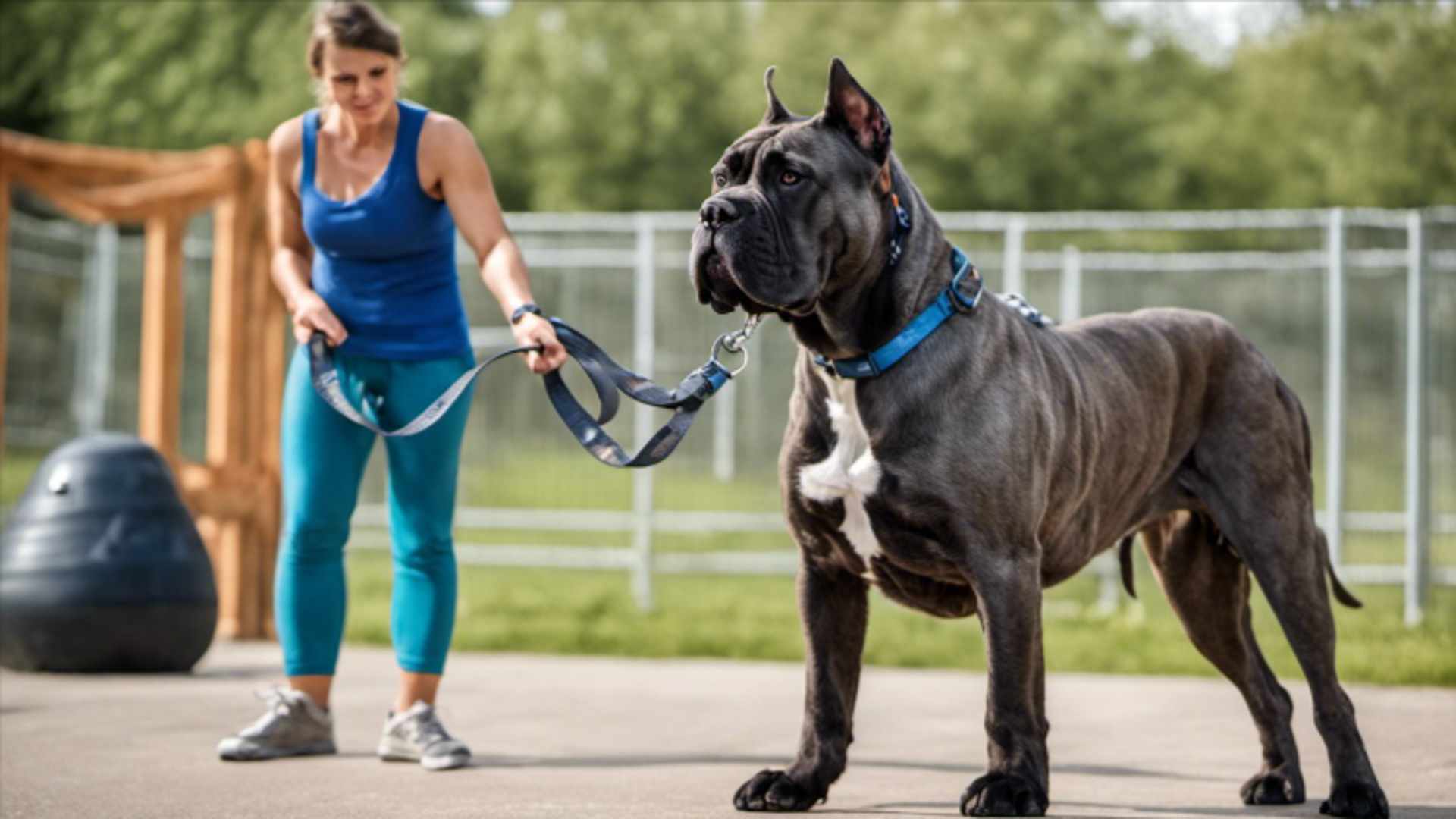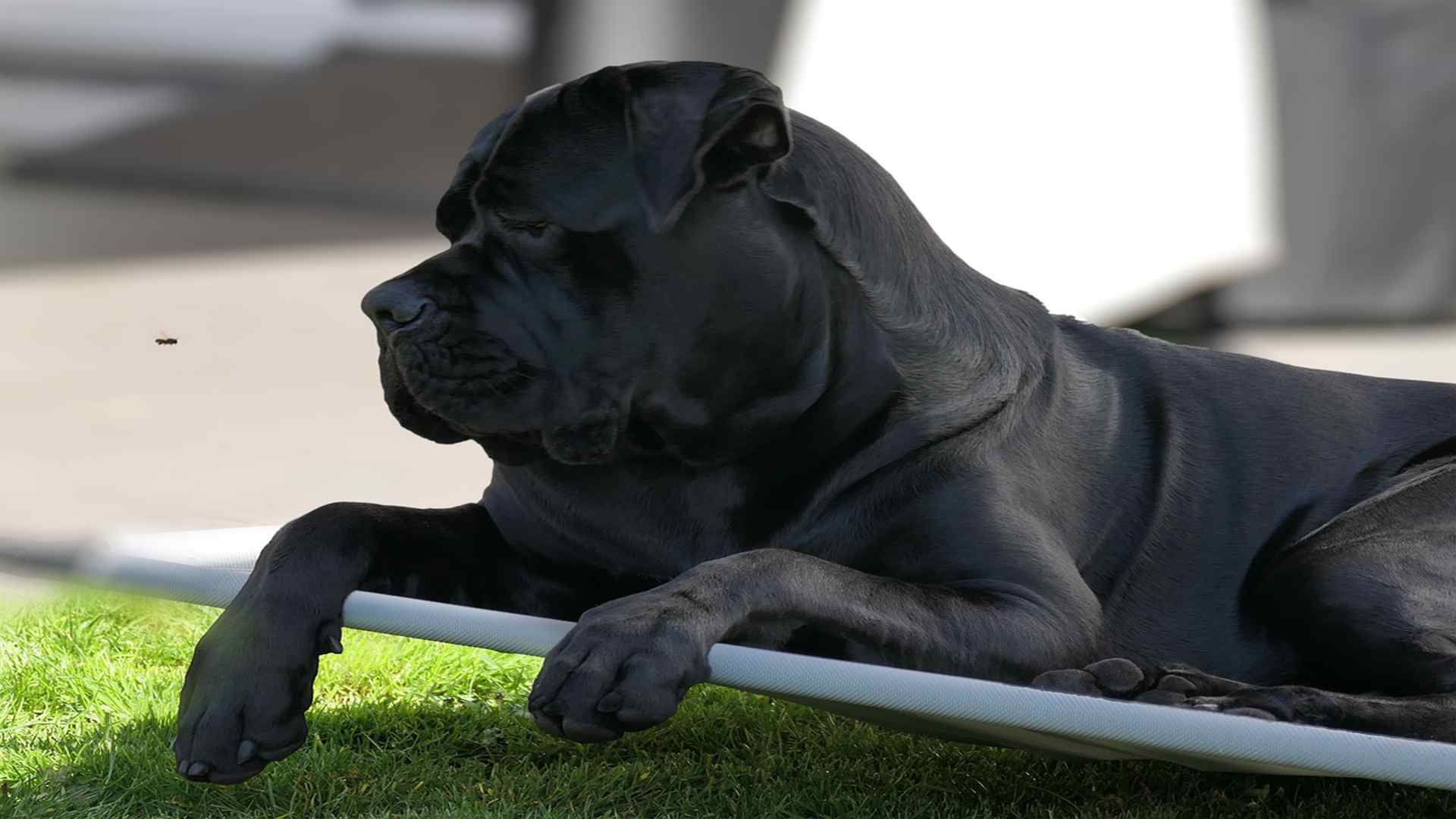My cousin recently got a Cane Corso puppy, and she asked me if the breed is known to be clingy. She wanted to know how much attention and cuddling her new pup would need.
This is an important question when considering any breed of dog, so I wanted to do some research into the temperament of the Cane Corso.
The first information I found was that, generally speaking, the Cane Corso breed is known to be a loyal, devoted breed of dog.
However, many people wonder if this breed is clingy. The answer is yes and no, depending on the individual dog and their training and socialization.
Cane Corsos are known for their strong bond with their owners and their desire to always be near them.
They are often referred to as ‘velcro dogs’ because they will follow their owners from room to room and want to be involved in everything that is going on.
In this article, I will discuss Cane Corso’s natural temperament and how to best train and socialize the breed to avoid any unwanted clingy behavior.
Let’s get into it!
Cane Corso: Overview
As a breed, Cane Corsos are known for their large size, athletic build, and protective nature. They are a type of mastiff breed and are often used as guard dogs.
Cane Corsos are also known for their loyalty and companionship, making them excellent family dogs.
Cane Corso temperament
Cane Corsos have a confident and intelligent personality. They are typically wary of outsiders but are very loving and affectionate with their owners.
They have a protective instinct and will often follow their owners around, making them a bit clingy.
Cane Corso behavior
Cane Corsos need a lot of love and attention from their owners. They bond deeply with their owners and can become anxious or exhibit destructive behavior if they feel ignored.
They are also very active dogs and require plenty of exercise to stay healthy and happy.
Socialization and experience with other dogs and people can help to reduce clinginess in Cane Corsos.
Their protective nature can make them dominant and wary of strangers, so early socialization is essential.
What does clinginess look like in a Cane Corso?
After observing my cousin Cane Corso, I have noticed that clinginess in this breed manifests in several ways.
A clingy Cane Corso may follow their owner around the house, whine or bark when left alone, or constantly seek attention by pawing or nudging their owner.
They may also become anxious or destructive when left alone for extended periods.
Is Clinginess common in Cane Corsos?
While not all Cane Corsos are clingy, some individuals may exhibit this behavior more than others. This is because the breed is known for its loyalty and attachment to its owners. However, excessive clinginess can be a sign of underlying issues such as separation anxiety.
Why do Cane Corsos become clingy?
Cane Corsos may become clingy due to several reasons. One of the most common reasons is a lack of socialization as a puppy.
If a Cane Corso is not exposed to different people, animals, and environments during their critical socialization period, they may develop anxiety and clinginess.
Changes in routine or environment, such as moving to a new home or the absence of a family member, can trigger clinginess in Cane Corsos.
Is clinginess a sign of separation anxiety?
Clinginess can be a sign of separation anxiety in Cane Corsos. Separation anxiety is a condition where a dog becomes anxious or stressed when left alone. The signs of separation anxiety in Cane Corsos include excessive barking or howling, destructive behavior, and toileting inside the house.
If you suspect that your Cane Corso has separation anxiety, it’s essential to seek the help of a professional dog trainer or behaviorist.
So, while Cane Corsos are known for their loyalty and attachment to their owners, excessive clinginess can be a sign of underlying issues such as separation anxiety.
As a responsible Cane Corso owner, it’s essential to understand the signs of clinginess and take steps to address them to ensure your dog’s well-being.
Dealing with a clingy Cane Corso
A few days ago, my cousin and I noticed that his Cane Corso had become quite clingy. However, there are ways to manage this behavior and help your Cane Corso become less dependent on you.
Training a Cane Corso to be less clingy
Training is essential when it comes to reducing clinginess in a Cane Corso. Teaching your dog basic obedience commands such as ‘sit,’ ‘stay,’ and “come” can help establish boundaries and build trust between you and your dog.
Positive reinforcement techniques, such as treats and praise, can also be effective in training your Cane Corso to be less clingy.
Socializing a Cane Corso to reduce clinginess
Socialization is another important aspect of reducing clinginess in a Cane Corso. Introducing your dog to new people, animals, and environments can help them become more confident and independent.
Puppy classes and obedience training can also provide opportunities for socialization and help your Cane Corso become more comfortable around other dogs and people.
Providing adequate exercise and stimulation
Cane Corsos are energetic dogs that require plenty of exercises and mental stimulation. Providing your dog with daily walks, playtime, and training sessions can help reduce their clinginess and prevent behavioral issues such as boredom and anxiety.
The best option is to have a long walk if you live near a park. I apply this concept even with my two dogs, and it works well!
This will give your Cane Corso the opportunity to interact with other dogs and people while exercising and burning off excess energy.
Managing separation anxiety
Separation anxiety is a common issue in Cane Corsos that can lead to clingy behavior. To manage separation anxiety, it’s important to gradually introduce your dog to being alone and provide them with plenty of mental and physical stimulation while you’re away.
Crate training can also be helpful in providing a safe and comfortable space for your dog while you’re gone.
For instance, my cousin makes sure to leave a puzzle toy with treats inside the crate for his Cane Corso while they’re out. This helps keep her occupied and reduces the stress of being left alone.
Are females Cane Corsos more clingy than males?
The differences in clinginess between Cane Corso male and female dogs are not as significant as those between different breeds, but there are some subtle distinctions.
Male Cane Corsos tend to be more protective of their owners and may be more prone to clingy behavior than females.
Females are more independent by nature and can often handle being left alone better. Both genders can become overly dependent on their owners if they become anxious or bored.
Tip: To avoid clinginess behavior in Cane Corsos, try to establish a consistent routine that includes plenty of exercises. A tired dog is a happy dog!
Summary
Before we move on to the conclusion, we’ve summarized this article into a short list of key points for you to remember:
- Cane Corso dogs are known for their loyalty and companionship, making them excellent family dogs.
- They are also very protective and will often follow their owners around, making them a bit clingy.
- Cane Corsos may become clingy due to a lack of socialization, changes in routine or environment, or separation anxiety
- Training, socialization, and adequate exercise can help to reduce clinginess in Cane Corsos.
Conclusion
After researching and analyzing the behavior of Cane Corso dogs, I can confidently say that they are a breed that can be clingy at times.
That said, this clinginess is not necessarily a negative trait, as it is often a sign of their loyalty and affection towards their owners.
So, if you had to choose between a male or female Cane Corso, it wouldn’t make much of a difference in terms of clinginess.
What’s important is that you provide your Cane Corso with the proper training, socialization, and exercise to ensure they become well-adjusted dogs.
Want to learn more about Cane Corso?
Ready to boost your knowledge to the next level? If so, check out the articles below:
- What Were Cane Corsos Bred For? Complete Guide (2023)
- Are Cane Corso Good Apartment Dogs? An Owner Explains
- How Do Cane Corsos Handle Weather Temperatures? (Complete Guide)





